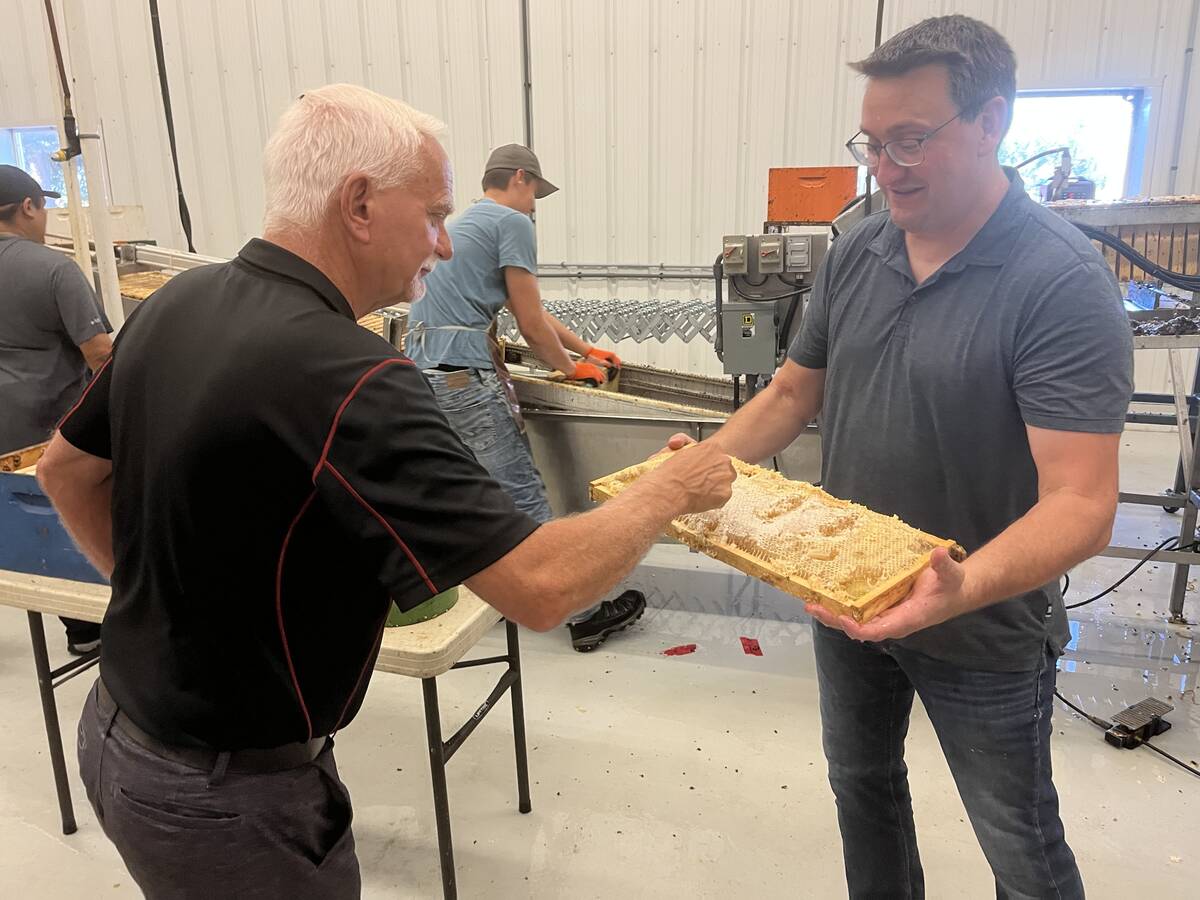The book, Another Country by Mary Pipher (Penguin Putnam, $19.95) caught my attention on a recent trip to Saskatoon, partly because it is on the topic of
aging. Whether I like to admit it or not, I have to accept that at age 61, I am definitely moving
on my way.
Once the responsibilities of full-time working or parenting can be put aside, time becomes an important asset. The key is in how people see that time. Is it seen as an opportunity to do new things, or is it seen as being put out to pasture?
Read Also

Alberta honey business ‘thrives’ despite bumpy beginnings
Thrive Honey showcases its honey production in market where Alberta produces 40 per cent of all honey produced in the country
Pipher points out that the meaning of the word “old” has changed. In the 1800s, a 35-year-old person was considered old. Today, people live well into their 80s or 90s.
But, there is an important distinction between the young-old and the old-old. And it is usually not at all related to how many years you have lived. It has to do with what you have lost.
Losing a job often makes a person old if they don’t have any meaningful activity to replace it.
Losing a close relationship, especially the death of a spouse, can also trigger a person into feeling and acting old. It is difficult to
accept that eventually, one of us will have to survive without the other. People who find creative ways to survive such losses tend to stay young.
Physically old
Pipher believes the loss of health is what often quickly moves a person into being an old-old. As long as people have their mobility and their thinking, they can remain young-old for a long, long time. But physical frailty can create a cage around us, and we may then become more focused on surviving rather than living.
The more the illness restricts your activities, or that you fear it, the older it will make you. Pipher points out that one of the key differences between the older generation and the younger one is the difference in “community.”
In rural towns and in old neighborhoods of cities, people knew each other for years, and had many social activities that kept alive their sense of belonging. The ritual morning coffee clatch of retired farmers in small towns is one such activity.
Modern society focuses more on acquaintances, rather than deep friendships, on casual contacts, rather than long-term relationships.
As Pipher phrases it, “Community is like wilderness, a concept that grows more dear as its reality vanishes. … If we give our elders our time and our respect, they can teach us how to rebuild our sense of community. They can teach us about civility, accountability and connection.”
















